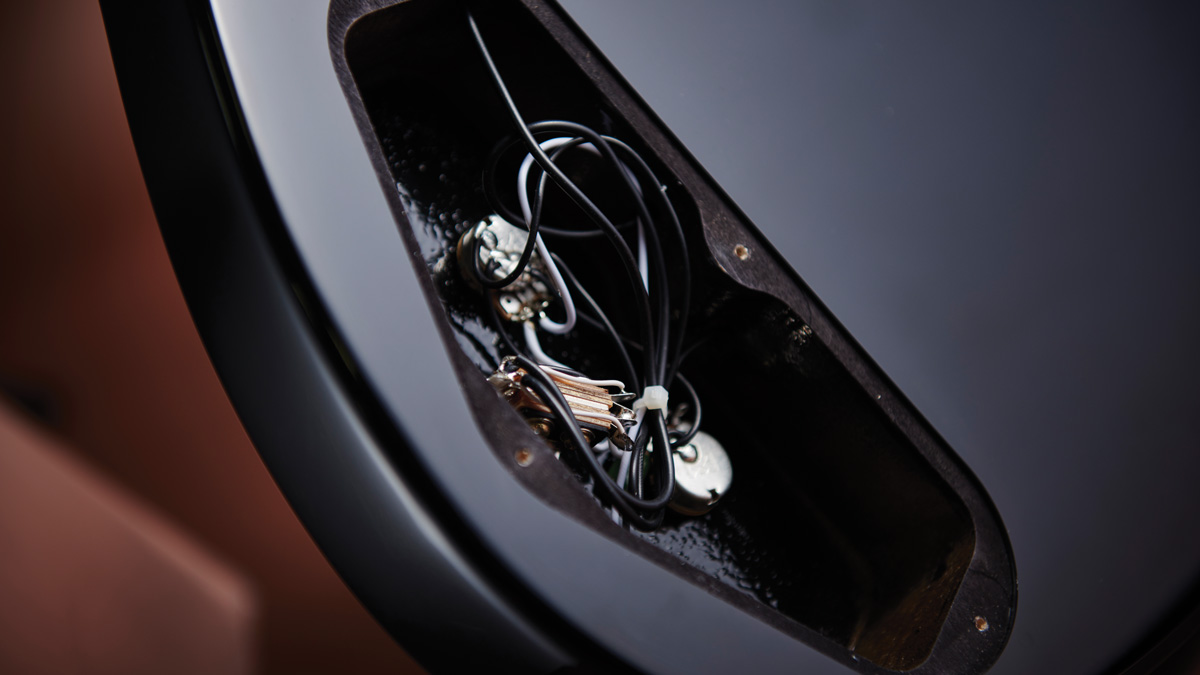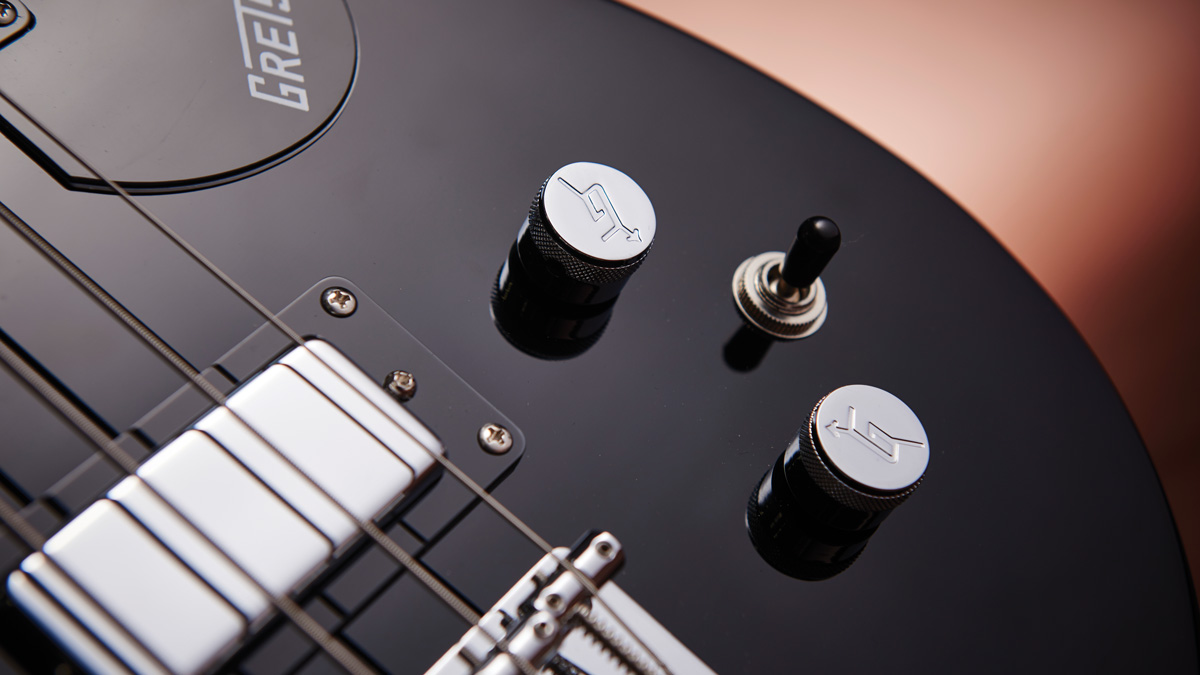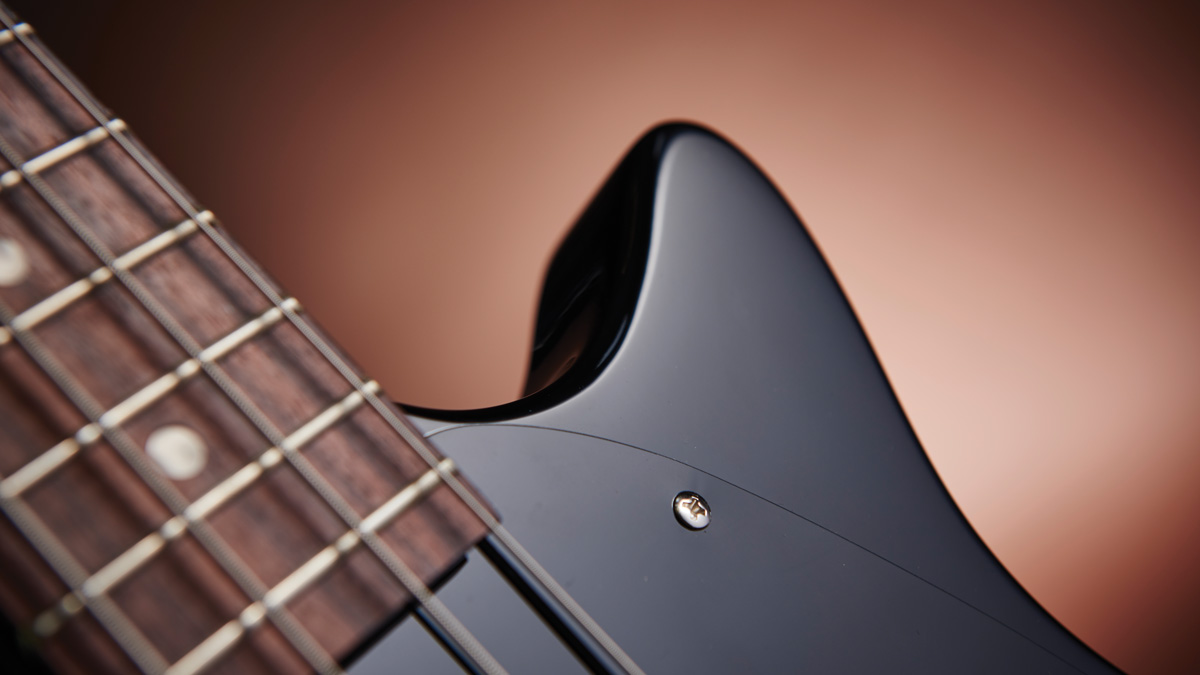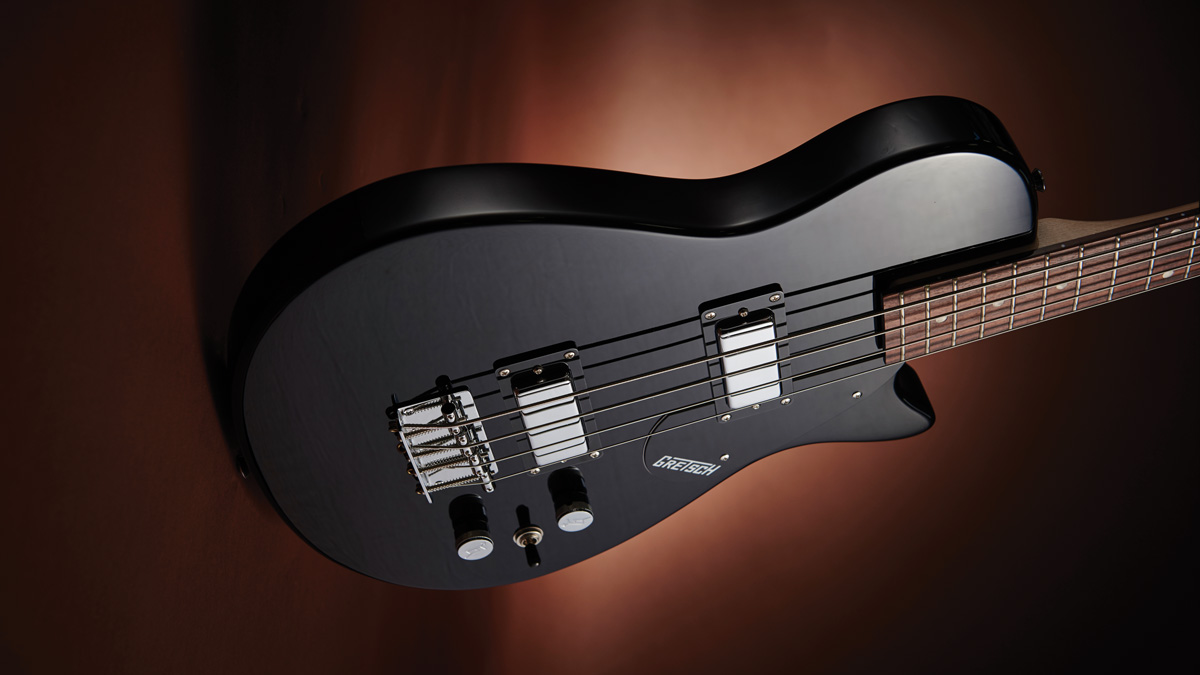MusicRadar Verdict
Great value for the price, offering something different from the usual Fender clones.
Pros
- +
No fuss, simple visuals, simple tone in a very player-friendly package.
Cons
- -
Limited tonal variety.
MusicRadar's got your back
Although we don’t see many Gretsch basses for review here, the Gretsch name alone is reason enough to sit up and take a considered look at one of their instruments.
Blessed with a 30.3” scale, this diminutive black and chrome beauty looks simple and effective, without too many bells and whistles. It’s also priced very competitively - so does it sound as good as it looks?
Build
The single cutaway Les Paul-esque black gloss body shape fits in perfectly with the general vibe and offers good access to the upper frets. Despite no contouring on the front or back of the body, the bass is comfortable to wear and play, and the short scale accentuates these aspects. There is a slight headstock bias but the instrument balances perfectly on a strap.
The gloss-lacquered maple neck possesses a shallow D-shaped profile, which adds to the comfort factor, while the 19mm string spacing compensates for the tight fret positioning. The neck itself is sleek and slinky, making it easy to navigate, and the set-up is generally very good with no sharp fret ends that we could find.

Gretsch G220 Junior Jet

Gretsch G220 Junior Jet

Gretsch G220 Junior Jet
The rosewood fingerboard features mother-of-pearl position markers and white dots along the side of the neck, but with only 20 frets available, don’t worry about getting lost: most positions are easily reached. The four-bolt neck pocket offers a sturdy attachment with no visible gaps between the neck and body.
The twin-ply black scratchplate, chrome bridge, die-cast machine heads and chrome humbucking pickups with black surrounds work in combination with the retro visuals. The machine heads and the chrome volume and tone controls operate very smoothly, embossed with the letter ‘G’, while the Gretsch moniker adorns the scratchplate and beefy headstock. A quick peek inside the control cavity presents a very lean and clean wiring set-up. Overall, this is a sturdy bass.
Sounds
The general perception is that short-scale instruments, especially basses, sacrifice some tonal aspects in the name of the comfort that the shorter scale provides to the player. This is because the speaking length of the string is shorter, but the Junior Jet is no tonal slouch. From the off, the tone from both pickups is clear and forthright. Although there isn’t a huge amount of power, the passive pickups do a reasonable job of conveying the tone of the instrument.
Want all the hottest music and gear news, reviews, deals, features and more, direct to your inbox? Sign up here.
As expected, the neck pickup offers a certain amount of warmth and roundness while the bridge pickup is a far twangier affair with a bright response. Note that the neck pickup is positioned far enough away from the end of the neck to offer definition and character without swamping the tone with a woolly response. For those with small hands, or who simply find long-scale basses far too much effort, the Junior Jet will feel comfortable as a suitable alternative for those who want to get down with the low end without the physical effort required by most basses.
The available tones sound smooth and thorough, with no tonal harshness – although if you really want a fat, punchy tone, you would be advised to look elsewhere. For those bassists of a soulful or rocky persuasion, this bass may well tick your boxes.
At only £312, this is a steal: although a Gretsch bass may not be at the top of your bass shopping list, there is much to appreciate about it
That’s not to say that it doesn’t have some tonal colours to offer - it does, as opening up the tone control illustrates. Passive, short scale and possessing a top-loading bridge, it has obvious restrictions - not that being passive ever held Fender basses back, for example.
Don’t be put off by the tight fret spacing: this bass is very accommodating and playable. Its reduced neck dimensions and string length simply give it a familiar charm. We dare you not to pick one up and be happily whizzing up and down the neck in no time. Pick players will enjoy the slinky string tension and ‘clank’ on offer while fingerstyle players will warm to the rounded, ballsy tone and effortless comfort.
At only £312, this is a steal: although a Gretsch bass may not be at the top of your bass shopping list, there is much to appreciate about it. For those who like a simple instrument without all the bells and whistles and are looking for an equally simple tone without too much fuss, the Junior Jet is certainly worthy of your consideration.
Its simplicity is a plus point, and if you don’t like the black and chrome styling, a tobacco sunburst option is also available. Solidly built, solid tone, comfort, playability - what’s not to like?
